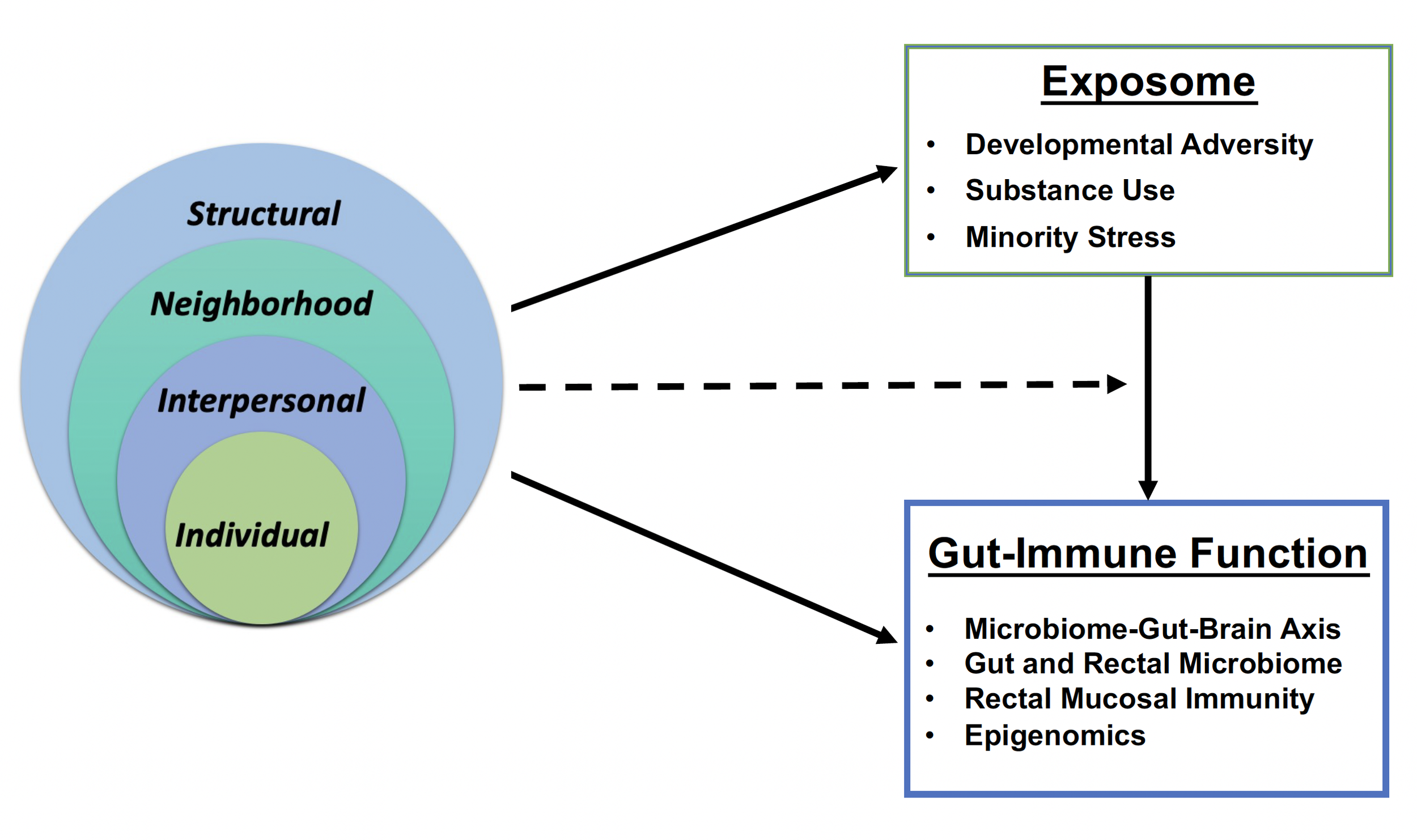
Collaborating with underserved & stigmatized communities to improve health outcomes.
iCARUS
The Innovative Collaboratory Advancing Research with the Underserved and Stigmatized (iCARUS) bridges the boundaries that have traditionally divided biomedical and behavioral research to advance health equity for marginalized, underserved populations. Led by Dr. Adam Carrico, our clinical research is focused on developing and testing novel biobehavioral interventions to address the intertwining epidemics of stimulant use and HIV. Our iCARUS team is also pursuing translational projects to elucidate the neuroimmune pathways that underlie prevalent psychiatric comorbidities relevant to HIV prevention and pathogenesis. Please read about our projects to see if you might be interested in collaborating with our iCARUS team or participating in one of our ongoing studies.
Our “cells to society” approach.
The iCARUS research portfolio embraces taking a whole person approach to understanding psychiatric comorbidities that are prevalent among people living with HIV and people who are at risk for acquiring HIV. We seek to determine how fundamental biological alterations in gut-immune function underlie psychiatric disorders such as stimulant use disorders and depressive disorders. Studies in our iCARUS portfolio examine the extent to which biological processes relevant to HIV prevention and pathogenesis are modified by the exposome, which is comprised of individual-level developmental, psychological, and behavioral factors. Another important aspect of our work is our drive to move beyond individual-level determinants so as to place complex psychiatric conditions, like stimulant use disorders, in context. As a result, several ongoing iCARUS projects are examining whether and how multi-level determinants could directly or indirectly modify gut-immune function (see Figure below).
Research Team
Our iCARUS team is comprised of compassionate, knowledgeable, and experienced investigators with training in Public Health, Clinical Psychology, Neuropsychology, Psychoneuroimmunology, and Medicine. We collaborate closely with a national network of colleagues to successfully execute several ongoing iCARUS projects.
Study Activities: In-person & Remote
We maintain several community-based field sites to support in-person study activities. Where possible, participants can complete remote visits and self-collect biospecimens.


